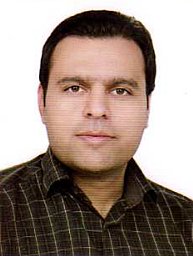Mohammad GhasemiGol
Mohammad GhasemiGol is an associate researcher at the Imperial College London, UK. He is also served as an assistant professor of computer engineering at the University of Birjand, Iran, since 2016. He was the IT director and the director of the Computer Emergency Response Team (CERT) at the University of Birjand for more than five years. From November 2014 to July 2015, he was with the Information Security and Privacy: Interdisciplinary Research and Education (INSPIRE) Lab at the University of North Texas, US, as a visiting research scholar.
His research is focused on various aspects of cybersecurity and machine learning area including incident handling, intrusion detection and response system, insider threats, alert management, clustering and classification methods, deep learning and explainable AI algorithms, and biomedical data analysis. He is a reviewer in many reputable journals such as Applied Soft Computing, Computers & Security, Computer Communications, Journal of Network and Computer Applications, etc.






